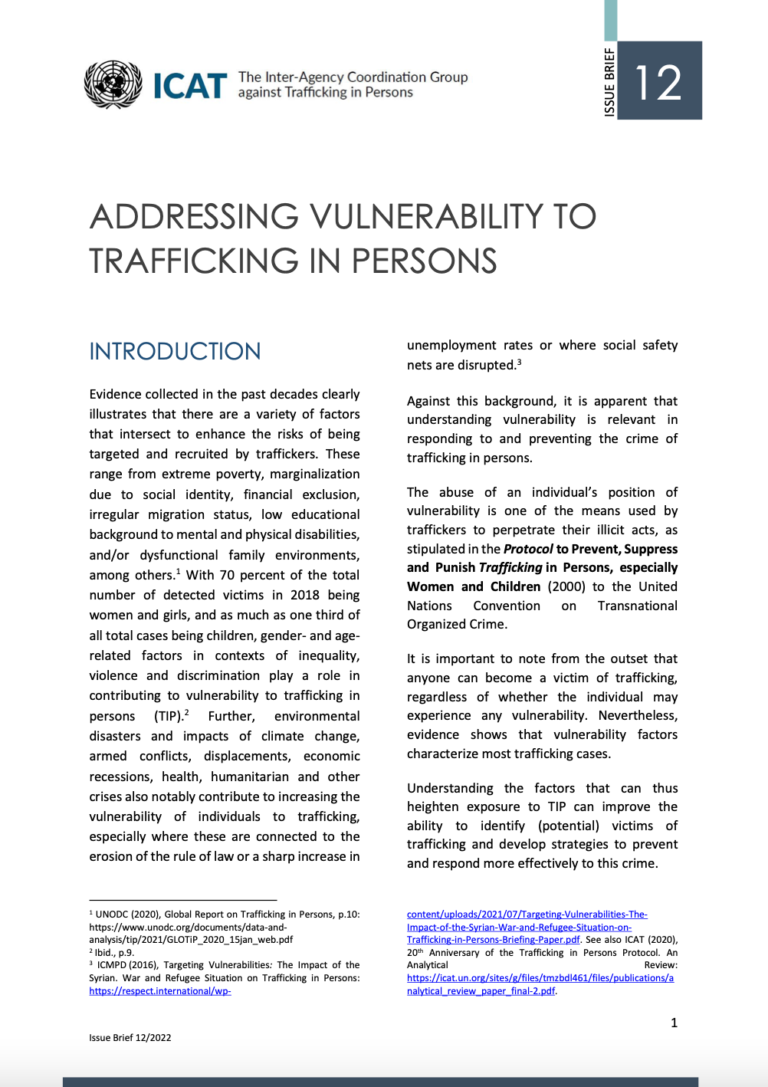Evidence collected in the past decades clearly illustrates that there are a variety of factors that intersect to enhance the risks of being targeted and recruited by traffickers. These range from extreme poverty, marginalization due to social identity, financial exclusion, irregular migration status, low educational background to mental and physical disabilities, and/or dysfunctional family environments, among others. With 70 percent of the total number of detected victims in 2018 being women and girls, and as much as one third of all total cases being children, gender- and age- related factors in contexts of inequality, violence and discrimination play a role in contributing to vulnerability to trafficking in persons (TIP). Further, environmental disasters and impacts of climate change, armed conflicts, displacements, economic recessions, health, humanitarian and other crises also notably contribute to increasing the vulnerability of individuals to trafficking, especially where these are connected to the erosion of the rule of law or a sharp increase in unemployment rates or where social safety nets are disrupted.

